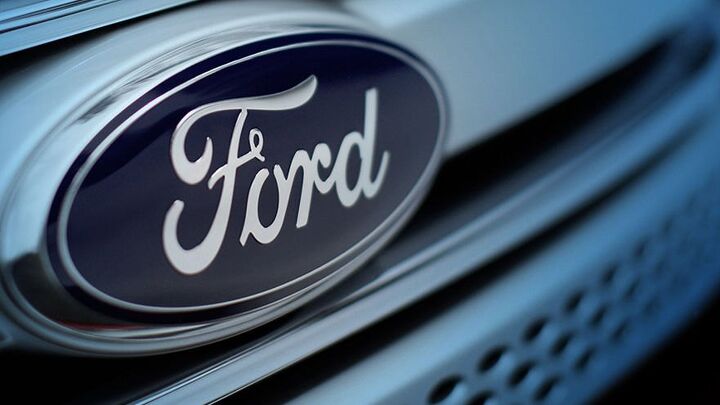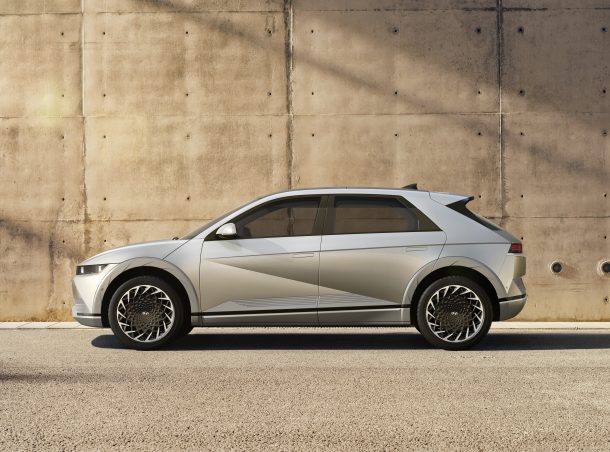#CATL
Investigation Faults Ford Battery Supply Over National Security Issues
Following fears that Ford’s electric vehicle supply chain may represent a national security issue, concerned legislators are doubling down by outlining the path battery components are required to take in order to get here. On Monday, Rep. Mike Gallagher (R-WI) and Cathy McMorris Rodgers (R-WA) accused the automaker of having plans that required contracting technology and software firms with close ties to both the Chinese and North Korean governments.
Report: Apple Car Suffers Another Setback
Following several months of news that Apple Inc. was in talks with battery suppliers to set the company up with the necessary hardware and know-how to manufacture electric vehicles, it looks like the iPhone purveyor is back to square one. Reports have emerged claiming the discussions with China’s Contemporary Amperex Technology Co. Limited (CATL) and BYD have stalled.
While the tech giant is said to be keeping a channel open, companies informed Apple over the last two months that they would not be willing to establish teams and U.S. facilities catering exclusively to its needs. While Japan’s Panasonic is still in the mix as a potential partner, it’s looking like the other companies are bowing out. Reasons are said to vary, however, political tensions between the U.S. and China are alleged to be a contributing factor.
Hyundai Reportedly Using SK Batteries for Ioniq 5
We recently published an article about Hyundai’s upcoming Ioniq 5 EV and closed by suggesting it might be desirable that North America wouldn’t be the first to get them. If you read our post about the automaker’s current situation with supplier LG Chem, you may have already been able to guess why we feel this way. The manufacturer is looking down the barrel of an expensive recall relating to battery fires and EVs have a propensity to experience botched product launches. Considering the newness of the technology, some of that is to be expected. But that may not be the whole story.
News has begun circulating that Hyundai and Kia would begin sourcing more products from China’s Contemporary Amperex Technology (CATL) and Korea’s SK Innovation. We’ve likewise seen reports coming out of Korea stating that the automaker had decided to install SK batteries in the Ioniq 5, presumably because the units it has already sold to Hyundai haven’t been implicated in any fire-related recalls.
EVs Have Given Asian Suppliers Unrivaled Industrial Might
Seen by some as a moral imperative, electrification is swiftly changing the dynamics of the automotive industry. While automakers spend billions of dollars developing EVs and securing the necessary partners, many are becoming dependent on a handful of companies in Asia for the all-important battery cells needed to power the damn things. It’s gotten so serious that the U.S. government has taken an interest following a December 2019 report from the Institute for Defense Analyses that claimed battery manufacturers had taken on an “outsized importance” in the automotive sector.
It also said the United States would be at a distinct disadvantage if there are supply shortages — which is something that has already happened and is presumed to worsen as more electric vehicles flood into the market over the next few years. The automotive industry is pushing hard into electrification as governments around the world attempt to plot out an elaborate plan to supplant the internal combustion vehicle with EVs. But there are concerns that this has stacked the deck for a small number of suppliers from China, South Korea, and Japan.
Batteries Not Included: Nio Ready to Lease EV Power Packs
Chinese automaker Nio is planning to allow customers to lease vehicle batteries independently from the cars themselves, and has involved Contemporary Amperex Technology (CATL) in the venture.
Considering EVs are useless without their battery, leasing an essential component seems to serve little purpose on its face. But Nio intends to sell its ES6 crossover for 273,600 yuan ($39,500) in China with the option to lease the battery for 980 yuan a month. Customers can also choose to purchase the entire vehicle outright for 343,600 yuan ($49,600) if they haven’t tricked themselves into believing a better battery is less than a year away.
This is a weird one, because the stated purpose is to lower the vehicle’s upfront costs. But it’s just a paperweight without an energy source, forcing customers to lease the power pack if they want to use the vehicle — and at no small cost. The companies announced the new program in Beijing on Thursday with Nio CEO William Li stating his company plans to enter Europe in the second half of 2021. Hopefully they’ll be dumb enough to accept the batteries-as-a-service premise.
With Range Comes Dominance? Daimler Strengthens Relationship With Chinese Battery Maker CATL
With practically every automaker on the planet attempting to make the electric vehicle segment work for them as well as Tesla has, they’re stepping all over each other to gain access to the components necessary to build them.
Everything from securing the raw materials for high-density cells to improving relationships with established battery suppliers will be essential for maximizing market share and embarrassing industry rivals like the little bitches they (hopefully) are. This has been especially true of German brands, who are trying to roll with increasingly demanding emission rules in Europe and China while likewise hoping to improve all-electric range and lower EV production costs.
Daimler, which already has supply deals with SK Innovation, LG Chem and Farasis, is seeking to bolster its partnership with China’s Contemporary Amperex Technology Ltd. (CATL) to address some of the challenges listed above. Mercedes-Benz wants to launch its EQS luxury electric sedan using CATL cells in 2021 — ideally with at least 435 miles of range per charge. While Daimler uses Worldwide Harmonized Light Vehicle Test Procedure (WLTP) metrics that typically average lower when assessed by the U.S. regulators, the proposed target remains enviable.
Better Batteries, New Corporate Identity Coming to Tesla?
Tesla plans to introduce a cheaper, longer-lasting battery in Model 3 sedans produced for Chinese customers. With the industry awaiting the next breakthrough in battery tech, and the hope that such a development will bring electric vehicle pricing closer to internal combustion units, this is a big deal.
Initial data also seems to suggest these cells plan on delivering — offering more affordable production options and a million-mile lifespan (a claim always worthy of a grain of salt). According to those familiar with the plan, the batteries also have the capability to be extracted from cars to serve as home-energy solutions. Battery waste is going to become a serious problem once EVs enter into the mainstream. Tesla’s new plan might fail to address the endgame, but it could prolong their usefulness and buy additional time before they have to be recycled or stored at specially designated waste containment areas that can handle hazardous materials.






















Recent Comments